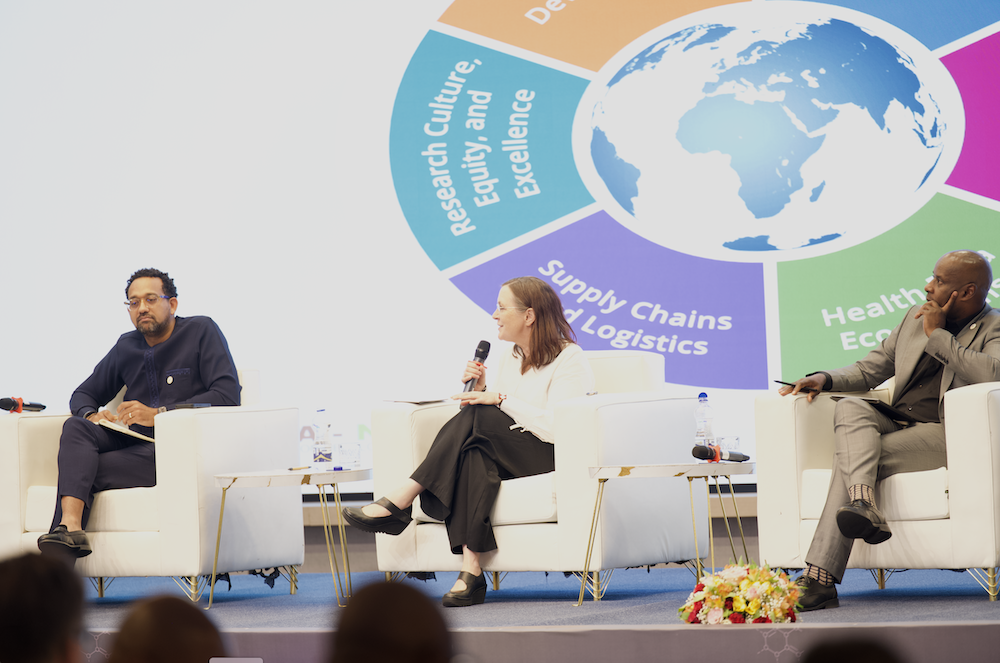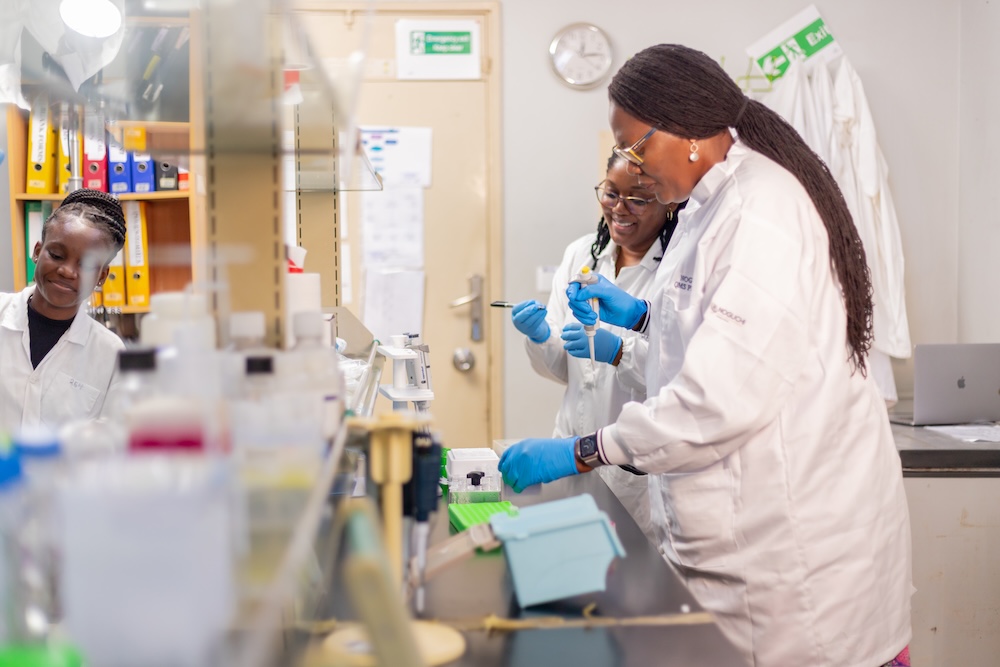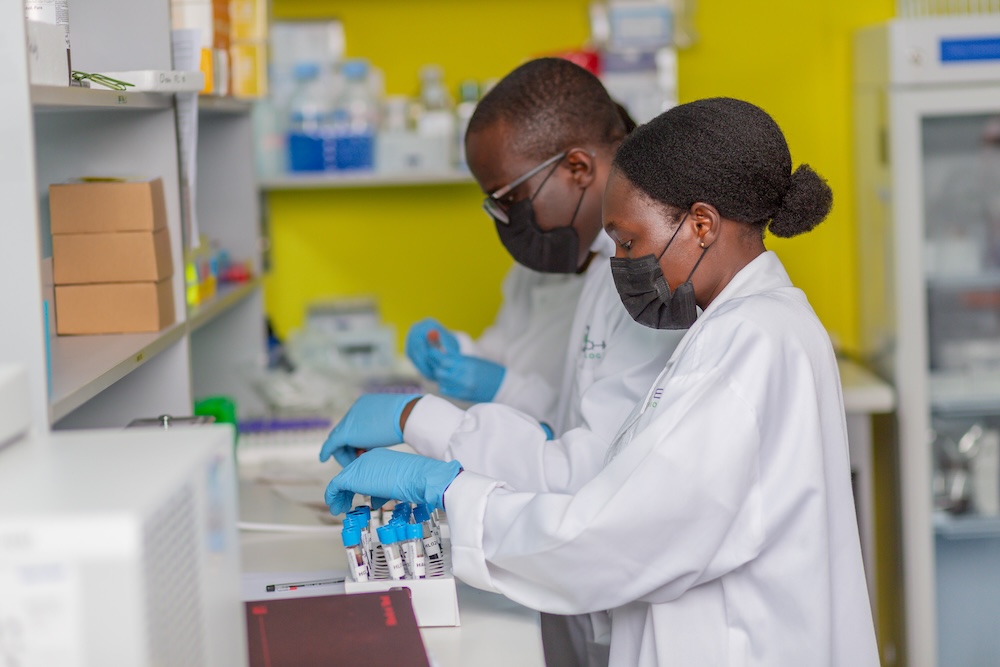
Media Centre
Inaugural marathon shines spotlight on postpartum haemorrhage awareness
Wednesday, October 9, 2024
Nairobi, Kenya, October 4, 2024 — No woman should die giving life, yet each year, more than 14 million women experience excessive bleeding after childbirth — known as postpartum haemorrhage (PPH) – with 70,000 women losing their lives. To create awareness and visibility of this crisis, the first-ever global Run for Her marathon shedding light on PPH will be launched at Kenya’s Ulinzi Stadium in Nairobi on 6 October 2024.
The EndPPH run mainly organised by the University of Nairobi (UoN) in collaboration with the Kenya Obstetrical and Gynaecological Society (KOGS), the Midwives Association of Kenya (MAK) and other partners, is an integral part of a broader campaign to raise awareness about PPH, its causes, consequences, and the preventative measures that can save lives. Professor Obimbo Moses Madadi, Chair Human Anatomy & Medical Physiology Department University of Nairobi and Calestous Juma Science Leadership Fellow is the team lead for the End PPH initiative, a global movement aimed at preventing maternal deaths under which the run is being organised.
“Postpartum haemorrhage remains the leading cause of maternal deaths worldwide, and we can no longer afford to overlook its devastating impact. Through initiatives like the Run for Her marathon, we are raising awareness and bringing attention to the urgent need for more resources, education, and research. I believe that by bringing together governments, healthcare providers, and communities, we can save thousands of lives and ensure that no woman dies giving life,” said Professor Obimbo Moses.
Olympian and Kenyan top female Athlete, Faith Kipyegon who holds the world record for the 1,500 meters, and the former world record holder for 5,000 meters, joins the EndPPH run to create awareness for maternal health. “As a female athlete and a mother, I am conscious of the challenges and risks women face daily. Losing life whilst giving a life should not be one of them. I am honoured to play my part in the Run for Her marathon to raise awareness around PPH.”
Dr Laura Oyiengo, UNICEF Health Specialist, said, “Two of the biggest challenges for a mother suffering from PPH is lack of access to skilled health personnel and lack of medical equipment to stop the haemorrhage. UNICEF’s strategy to address PPH in Kenya is to introduce innovative products that are low-cost and effective. One such equipment is a compression suit designed to apply external pressure to a woman’s lower body to reduce blood flow to the uterus and reduce hypovolemic shock. Without this, a woman can bleed to death within 30 minutes. But with the pressure suit, we can buy critical time for as long as 48 hours, which allows the patient to transfer to a healthcare facility equipped to provide the right treatment for PPH. With UNICEF’s global expertise in scaling and providing evidence-based technologies and interventions to tackle PPH, we can help ensure future PPH deaths are prevented.”
Common causes of PPH include uterine atony (inadequate contraction of the uterus), retention of placental tissue, lacerations in the birth canal, and abnormal blood clotting. Risk factors such as prolonged labour, anaemia, and pregnancy complications like preeclampsia further exacerbate the risk. Despite the numerous known causes, many cases occur with no identifiable risk factors, making early detection and management crucial.
"Creating awareness about PPH is essential in our fight to reduce maternal mortality, which remains a critical issue, especially in low- and middle-income countries. The International Federation of Gynaecology and Obstetrics (FIGO) is dedicated to implementing initiatives that empower healthcare providers and communities with the knowledge and tools necessary to prevent these tragic deaths. Together, we can make PPH-related deaths a thing of the past and create a safer future for mothers everywhere." Added Prof Kihara Anne-Beatrice, President of the International Federation of Gynaecology and Obstetrics (FIGO)
Challenges Facing Women at Risk of PPH
Women in low- and middle-income countries are particularly vulnerable to PPH due to several factors including inadequate access to skilled healthcare providers, lack of essential medical supplies, and gaps in emergency obstetric care. Kenya, like many other nations in Africa, is disproportionately affected by these challenges with certain Counties flagged as PPH "hot spots" by the Kenyan Ministry of Health where concerted efforts are needed to address the regional disparities.
"PPH is a pressing public health challenge that the Ministry of Health is committed to addressing. We recognise that every mother deserves a safe childbirth experience, free from the fear of preventable complications. This is why this run is important today raising awareness on this important issue.” said Dr Deborah Mlongo Barasa, Cabinet Secretary for Kenya’s Ministry of Health.
The Run for Her marathon serves as a clarion call inviting people from all walks of life to participate in the fight against PPH. Funds raised through this marathon will go toward supporting healthcare providers, improving access to essential medical supplies, and furthering research into preventative measures while building the capacity of healthcare workers in the maternal unit.
"Our society is dedicated to supporting pregnant women by advocating for quality maternal healthcare and empowering families and healthcare workers with the knowledge and tools they need to prevent complications like PPH to prevent these tragic outcomes. Our partnership in this run signifies a united front in advocating for safer childbirth experiences and driving meaningful change, ensuring that every mother receives the care she deserves and reducing maternal mortality across our nation" said Dr Kireki Omanwa, President of the Kenya Obstetrical and Gynaecological Society (KOGS).
“We are proud to play a pivotal role in the Postpartum Haemorrhage (PPH) Run, which serves as a crucial platform for raising awareness about this life-threatening condition. Through initiatives like the PPH Run, we aim to close the gaps in knowledge and access to care, empowering our midwives to effectively manage PPH and other complications." echoed Eunice Atsali, Secretary General, Midwives Association of Kenya (MAK).
The Run for Her marathon invites everyone to participate in this vital cause. Registration details are available on this link: https://endpph.com/pph-run-register
Media Enquiries
Dan Oloo, Communication Specialist, UNICEF Kenya [email protected].
Nyawira Gikandi, [email protected]
Additional quotes:
"At the Science for Africa Foundation, we believe in harnessing science to positively impact lives. Our support for the inaugural PPH run is driven by our commitment to ensuring healthy, productive African lives while celebrating Africa’s legacy as a cradle of innovation. Together with our partners, we are not only raising awareness but also mobilising resources and fostering local solutions that empower communities to combat this crisis. Our mission is to ensure that every woman has access to safe childbirth practices, turning our vision of a healthier future into a reality.” Dr Evelyn Gitau, Chief Scientific Officer, SFA Foundation
Notes for Editors
About End Postpartum Haemorrhage Initiative
The End Postpartum Haemorrhage Initiative by the University of Nairobi (UoN) in collaboration with the Kenya Obstetrical and Gynaecological Society (KOGS) and the Midwives Association of Kenya (MAK) is a global movement aimed at preventing maternal deaths by focusing on the early detection, treatment, and management of PPH. With Professor Obimbo Moses Madadi as Team Lead, the initiative seeks to educate communities, support healthcare professionals, and advocate for policy changes that will save the lives of women around the world. It seeks to reduce maternal deaths from PPH through comprehensive community and healthcare-based interventions. The initiative works closely with medical professionals to enhance early detection, timely referral, and effective management of PPH, ensuring that women receive the critical care they need before, during, and after childbirth.
About the Midwives Association of Kenya
The Midwives Association of Kenya (MAK) is dedicated to envisioning and ensuring quality midwifery care. Our mission revolves around advocating for midwifery as an autonomous profession, strengthening the midwifery profession to enhance the quality of care, and positioning midwifery as the standard for childbearing. We accomplish these objectives by promoting excellence, fostering innovation, demonstrating leadership in service delivery, and relentlessly working towards the recognition, visibility, and value of midwives.
About the Kenya Obstetrical and Gynaecological Society (KOGS)
Since its foundation, Kenya Obstetrical and Gynaecological Society has acted as an advocate for the advancement of women’s sexual and reproductive rights and has more recently articulated its position on sexual and reproductive health and rights at the ongoing constitutional review process.



